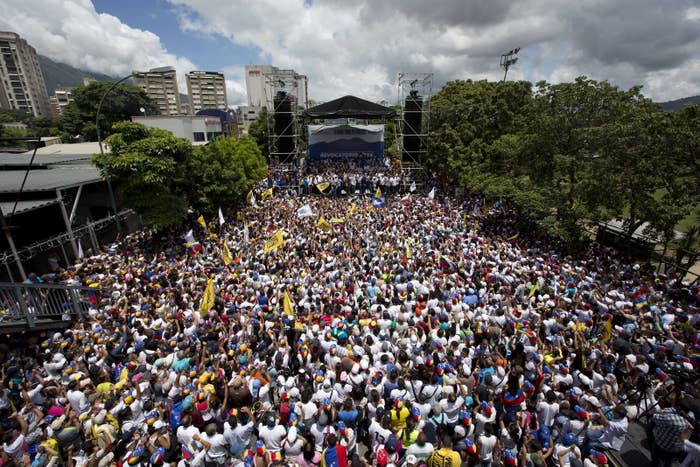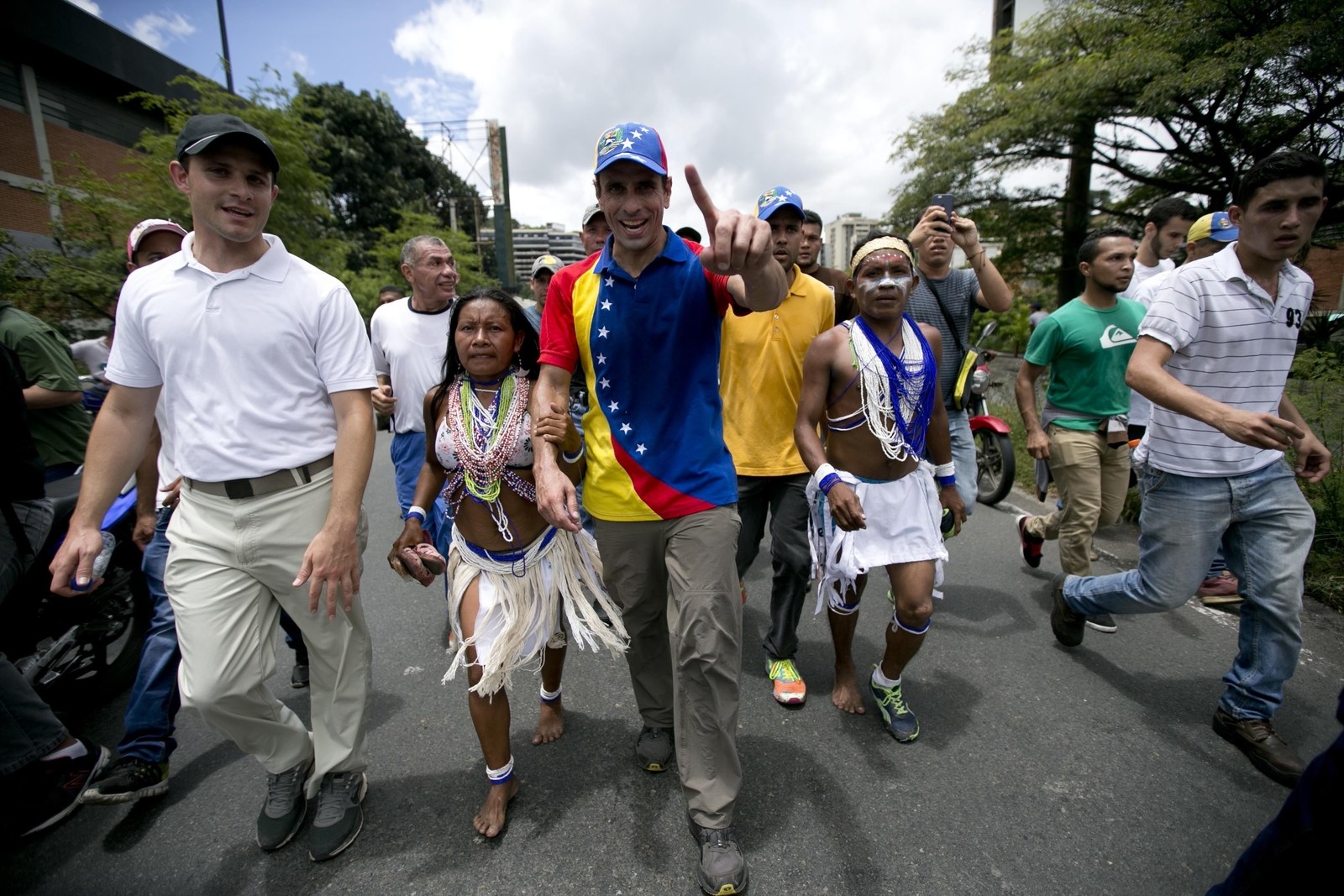
MEXICO CITY, Mexico — Venezuela's opposition convened a mass rally in Caracas Thursday in a last-ditch effort to oust President Nicolas Maduro as the country's economic woes deepen.
Throngs of people wearing white t-shirts and tricolor caps streamed down some of the city's main avenues blowing into trumpets and singing the national anthem. Reporters on the ground said the opposition estimated nearly one million protestors had taken to the streets in the capital city. Many of them had made days-long journeys from the provinces to reach Caracas in time for the rally.

Earlier this year, thousands of people signed a recall referendum to oust Maduro, under whose administration crime has skyrocketed, inflation has reached triple-digits, and shortages of basic goods — including medicine — have grown exponentially. Government critics accuse electoral authorities of holding up the process. If the vote is held after Jan. 10, rather than trigger new elections, the Venezuelan constitution stipulates that the recall would usher in a leader chosen by Maduro.
"How great that our country chose to impose democracy on dictators... because that is the road on which we are so close to attaining victory," said Jesus Chuo Torrealba, head of the coalition of Venezuela's opposition parties, during a Periscope broadcast hours before the march began.
The government convened its own marches prior to the opposition rally and blocked highways in and around Caracas to fragment protestors.

There is a "plan to bloody up Venezuela through a coup," Maduro, who blames most of the country's woes on the US, which he says is waging an economic war in Venezuela and supporting its opposition, said during a televised speech. He added that the state had captured a number of plotters and intended to detain more as part of his "preventative plan in favor of peace and justice." Authorities accused one of the opposition leaders detained in recent days, Yon Goicoechea, of carrying explosives. He added that the state had captured a number of plotters and intended to detain more as part of his "preventative plan in favor of peace and justice." Authorities accused one of the opposition leaders detained in recent days, Yon Goicoechea, of carrying explosives.
In the days ahead of the protest, Venezuelan authorities detained and expelled several foreign journalists who were planning to cover it. Many stores in the capital city closed on Thursday, bracing for violence. In 2014, 43 people were killed during mass protests.
Though Twitter users described the rally as organized and peaceful, local media reported authorities using tear gas to dispel the crowds.
#EnCaliente Bombas lacrimógenas en la autopista Fco Fajardo y plomo contra quienes ya se retiran en Las Mercedes
Opposition media tweeted photographs of protesters and mass police presence in Caracas.
Las fotos que tienen temblando al Gobierno https://t.co/VJGo4ZarM4
#Caracas1S GN bloqueó el paso de los manifestantes en la autopista Francisco Fajardo https://t.co/vyns9DhZMT
A esta hora la Rio de Janeiro en Las Mercedes. Más nada!
In December, the opposition won an overwhelming majority in parliament, dealing the first major blow to chavismo, the socialist movement created by former president Hugo Chavez, since 1999. But the Supreme Court, which is filled with supporters of Maduro, has rendered the legislative house essentially powerless. Maduro announced Thursday that he would strip opposition lawmakers of their parliamentary immunity.Maduro blames most of the country's woes on the US, which he says is waging an economic war in Venezuela and supporting its opposition.
Thousands of Venezuelans have left the country in recent months, resettling in Mexico, Panama and Spain, among others. Those that have stayed behind face major hurdles: University students in medicine-related fields are struggling to complete their studies because they cannot afford basic materials like gauze and anesthesia while parents are rushing across the border with Colombia to buy milk and other essential products which are either too expensive or scarce in Venezuela.
Torrealba announced a cacerolazo, or a huge gathering of people banging pots as a show of protest, would take place on Thursday night and another round of marches, this time to electoral offices across Venezuela next Wednesday.
